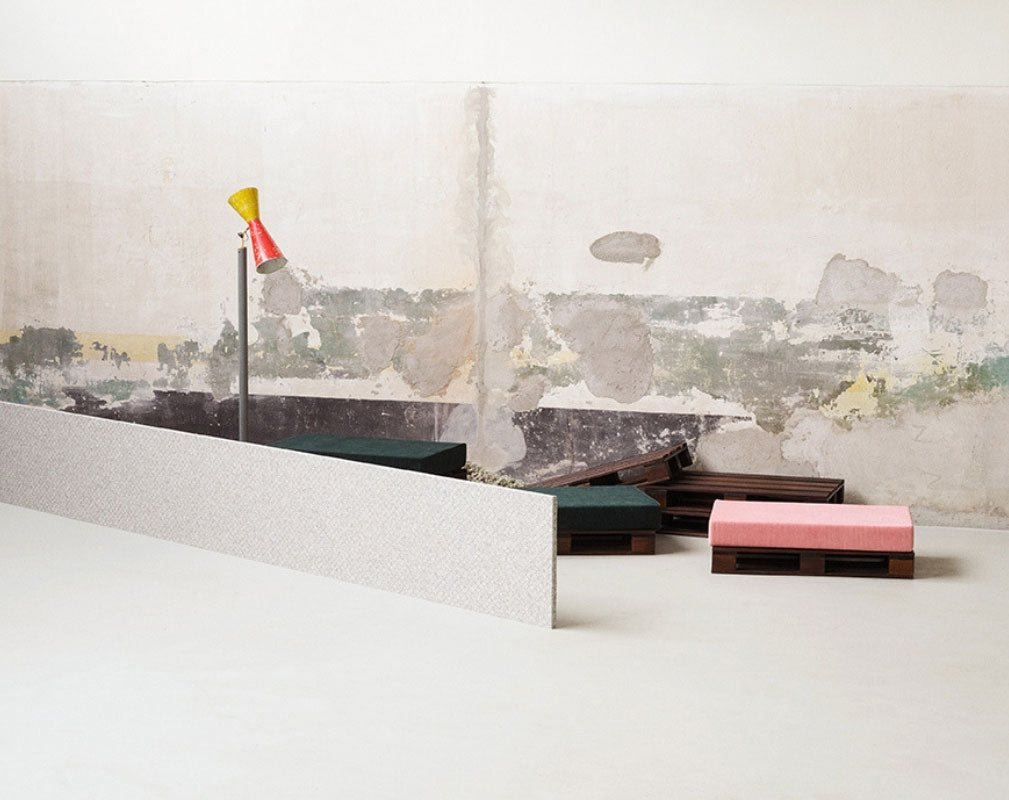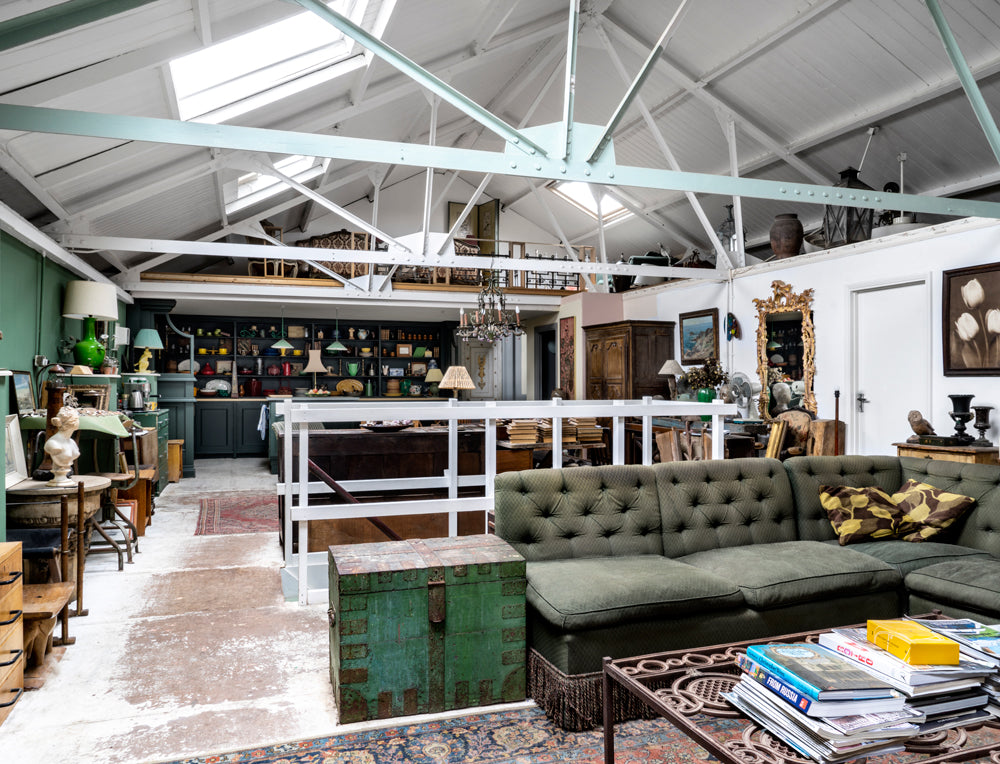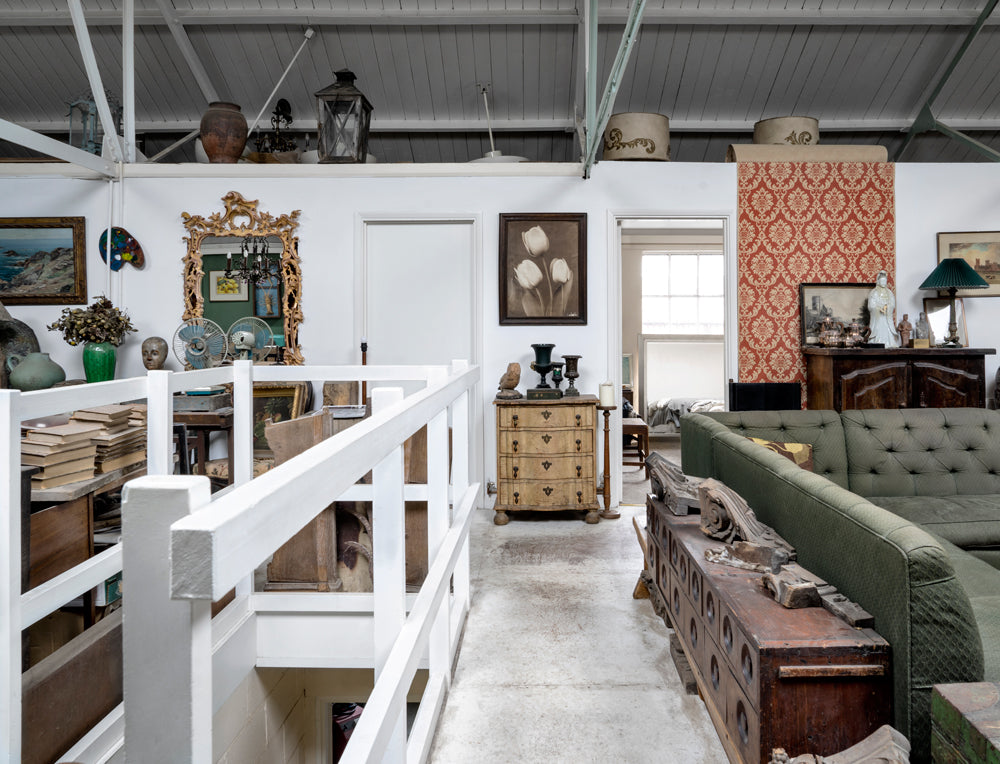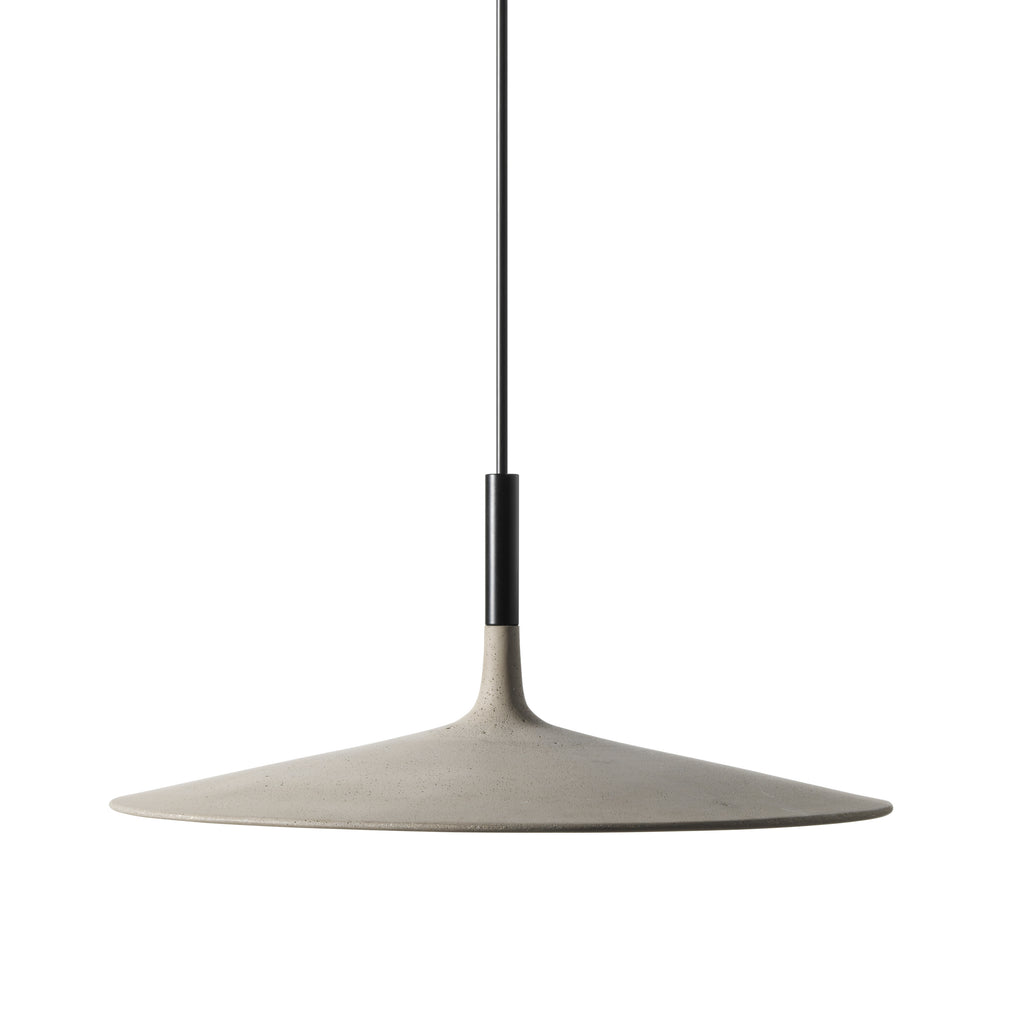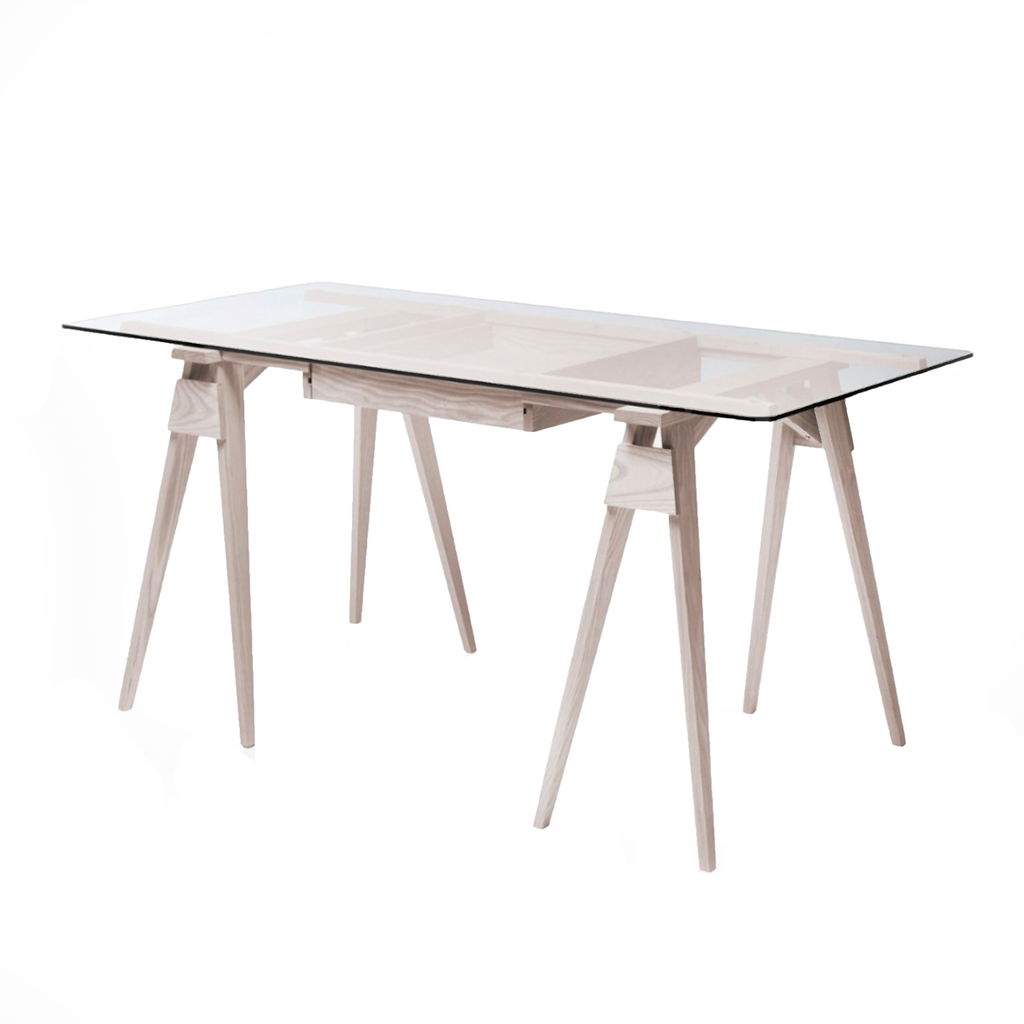
Milan Design Week, or Fuorisalone as it is also called, is considered to be one of the most important events in the world when it comes to design. We’ve selected five of our highlights from the show.
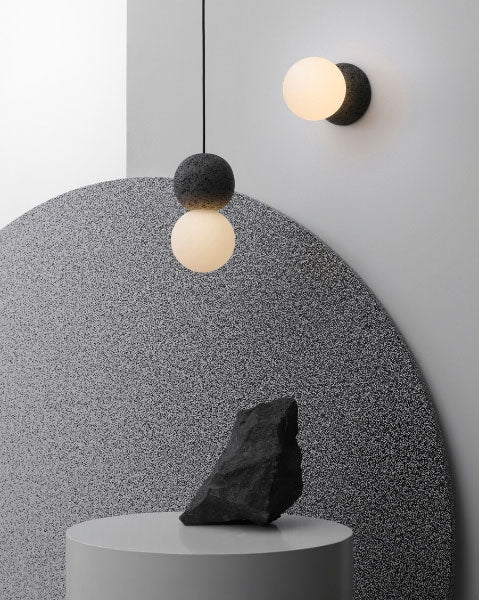
Fuorisalone is a busy week for the design community, with over 1300 events taking place in the various design districts around the city, not to mention Salone del Mobile, the furniture fair, that is located in Rho Fiera. The entire city of Milan comes to life as the international design community descends upon the city to experience events, exhibitions, installations, shows and presentations from the world’s most respected designers and brands. New products are launched, emerging trends are showcased, and up-and-coming designers are discovered.
We’ve kept a very close eye on the reports that have been coming out following the events and as always, we’ve been impressed with the quality of the designs that have been presented. From our observations we noticed a strong focus on materials and textures.
In light of the UN’s warnings about climate change and environmental catastrophe, lots of brands have started to take sustainability a step further by exploring the circular economy. We’ve seen a greater focus on making products recyclable, making products from recycled materials, designing out waste and using waste as a raw material.
We’ve also noticed a lot more texture coming through in design. Perhaps our increasingly digital lives lead us to crave more physical experiences, so we are looking for more tactile products that can give us this haptic interaction.
With this in mind, here are five of our favourite highlights from Milan Design Week 2019.
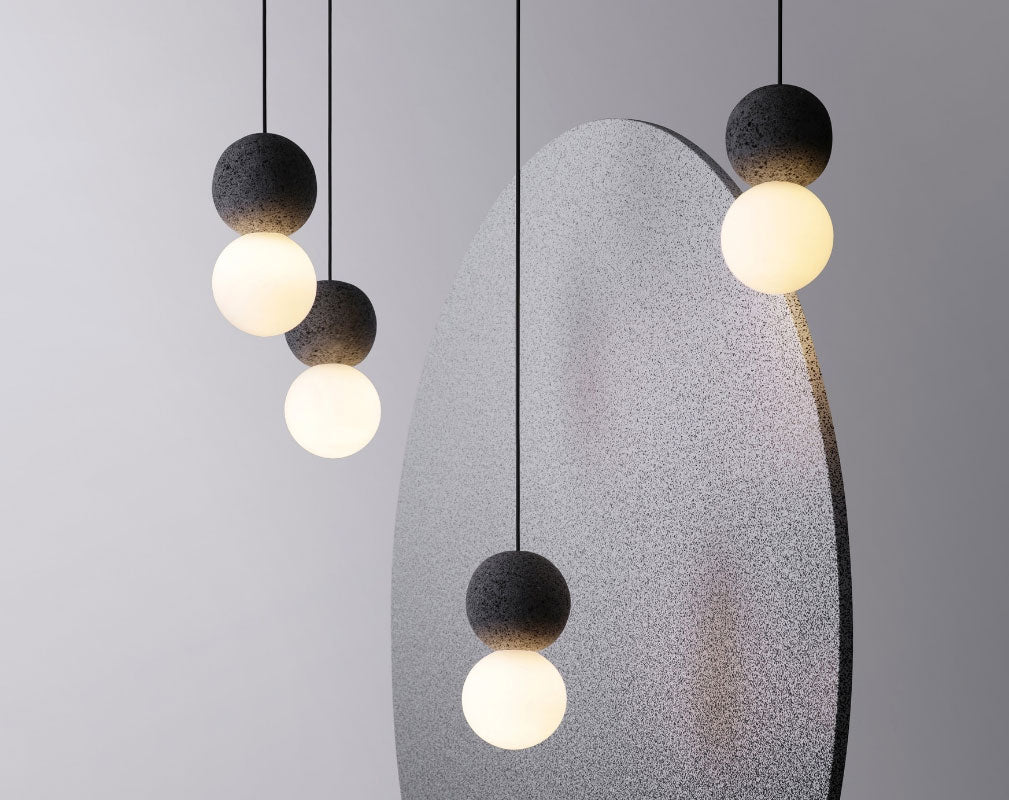
Studio davidpompa
Euroluce is the big lighting exhibition that takes place in Milan every two years and this year saw the launch of Origo by Studio davidpompa. Known for its strong commitment to honest materials and craftsmanship, Studio davidpompa is based out of Mexico and Austria.
Materials are at the heart of everything that Studio davidpompa does. By starting with an investigation into historical materials, they are able to give them a new context by rethinking their aesthetics. Their collections cherish the experience of craft and reinforce the value of materials and their recognisable style combines traditional materials with new techniques and contemporary ideas.
The Origo lights are no exception. They feature two distinctly contrasting materials: volcanic rock and an opal glass diffuser. Pairing these two contrasting materials allows them to explore the interaction between them. The soft light shines onto the texture of the volcanic rock, revealing its relief and contour. The result is an interesting relationship between light and composition.
We actually wrote about the trend for products made from lava stone in Warehouse Home Issue Six. You can get your own copy of Issue Six and all the other back issues here.
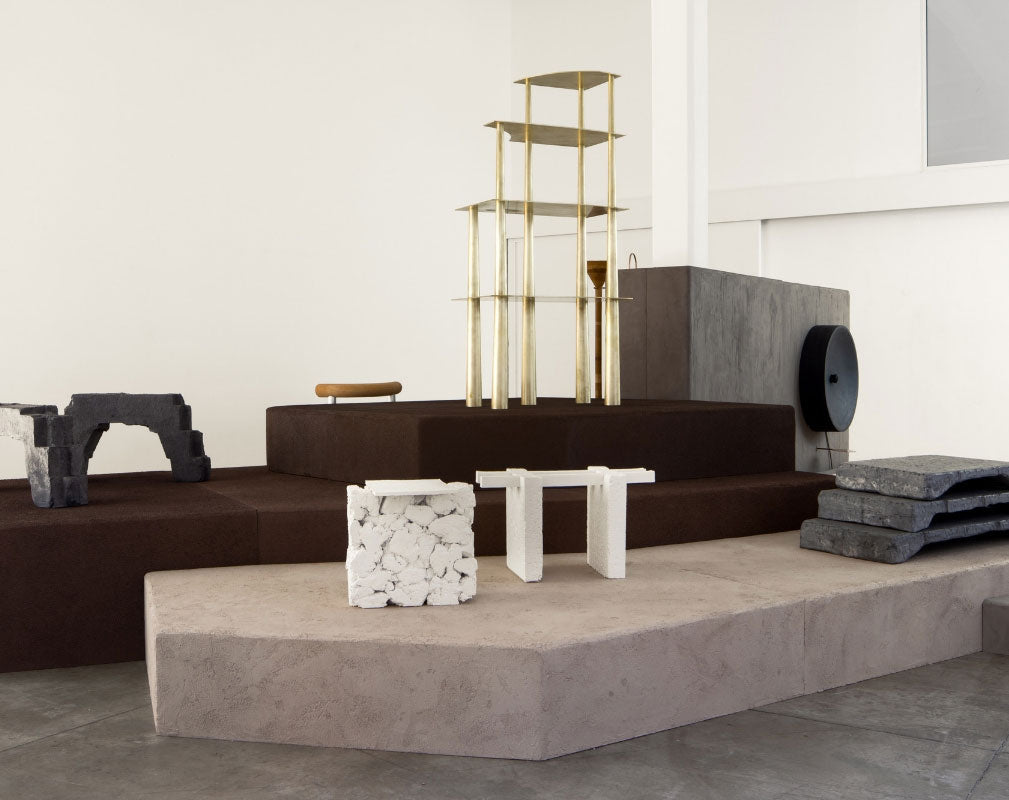
Brut Collective
BRUT was founded in 2018 and is a collective of emerging Belgian designers, dedicated to the architectural, sculptural and emotional potential of contemporary design. Every year, they come up with a theme for their scenography, which provides a context for their individual designs and concepts.
During this year’s Salone del Mobile in Milan, the BRUT collective was represented by Bram Vanderbeke, Charlotte Jonckheer, Linde Freya Tangelder and Nel Verbeke. They chose Bodem (soil) as their theme, inspired by the dusty charm of an archaeological site. To substantiate this inspiration, BRUT studied Teseum in Tongres, Belgium’s oldest city, where the remains of a Roman settlement are being excavated. This informed the colour palette, texture and raw materiality of their scenography.
The separate plateaus refer to the negative spaces which appear when artefacts and architectural remains are gradually brushed back to light. We really liked the organic, almost primitive design of the sculptural plateaus and pedestals.
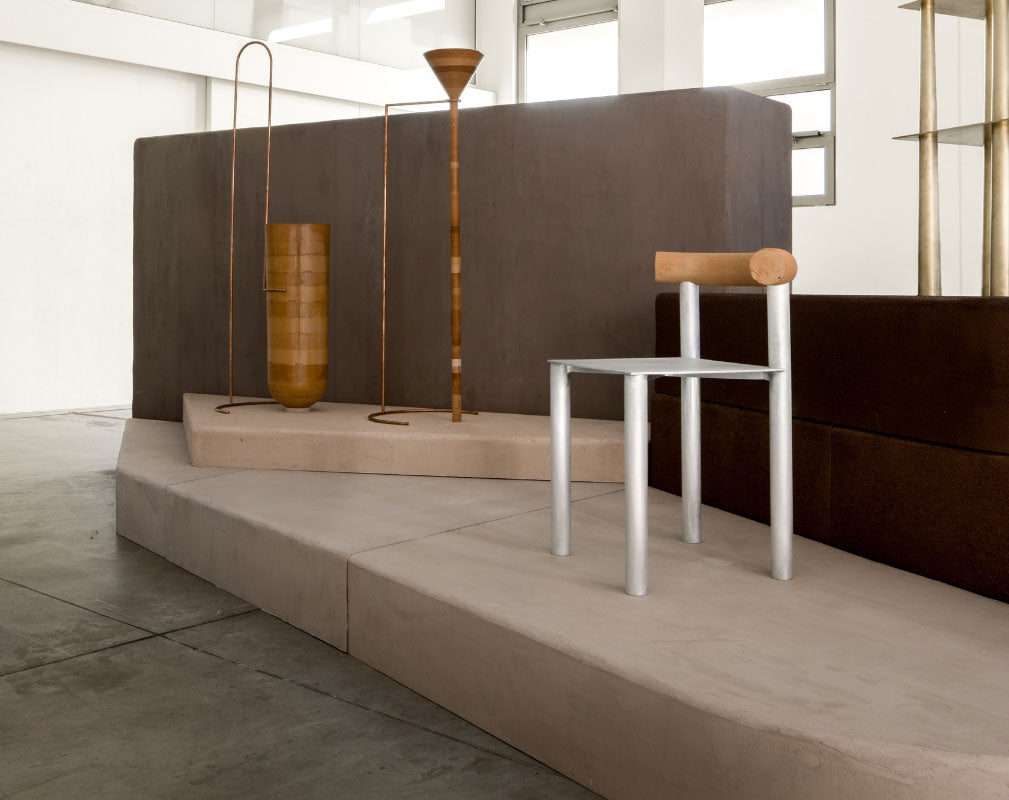
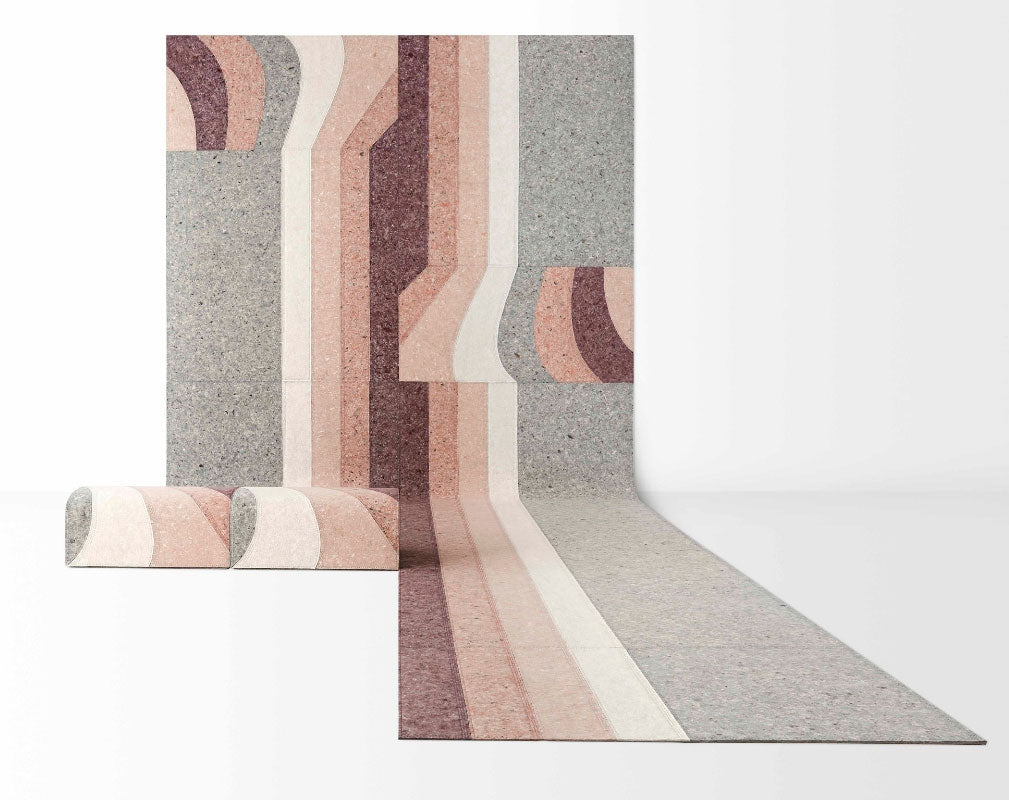
Gan Rugs
Well known for investigating new materials to achieve new textures and effects, Gan Rugs did not disappoint at this year’s Salone. Working in collaboration with renowned designer and architect Patricia Urquiola, Gan presented Nuances, a transgressive collection of rugs and a pouf that pushes the boundaries of traditional manufacturing processes.
Urquiola chose to use felt for the collection as she liked the warmth and malleability of this natural material. However, she wanted to reinvent the material in order to find a way to recycle discarded fibres during the production process.
After much experimentation, she merged different colours and densities of wool to achieve a stone-like appearance. Once the material was adapted, she played with its shapes and tonalities. The collection is available in three colour combinations: rose and burgundy (Burgundy), green and blue (Naiad) and earth and lava (Volcano).
The fluid design allows the lines to open and close and the colours to blur taking us on a visual and tactile journey and creating an intentionally sensorial and artistic experience.
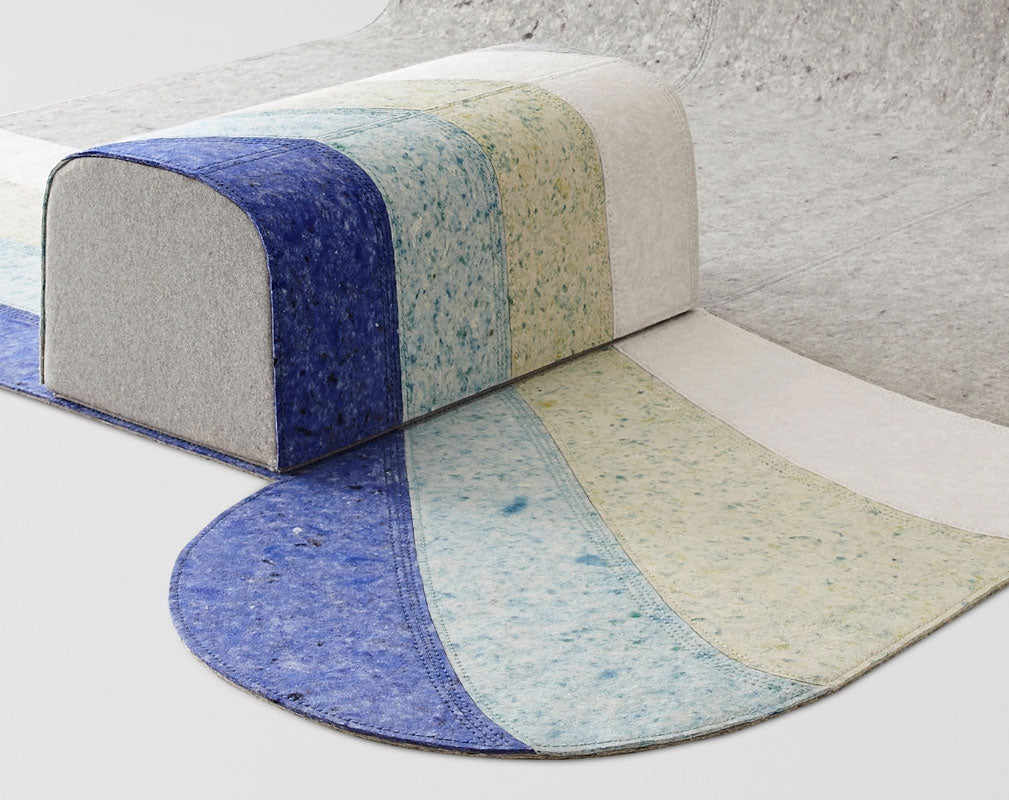
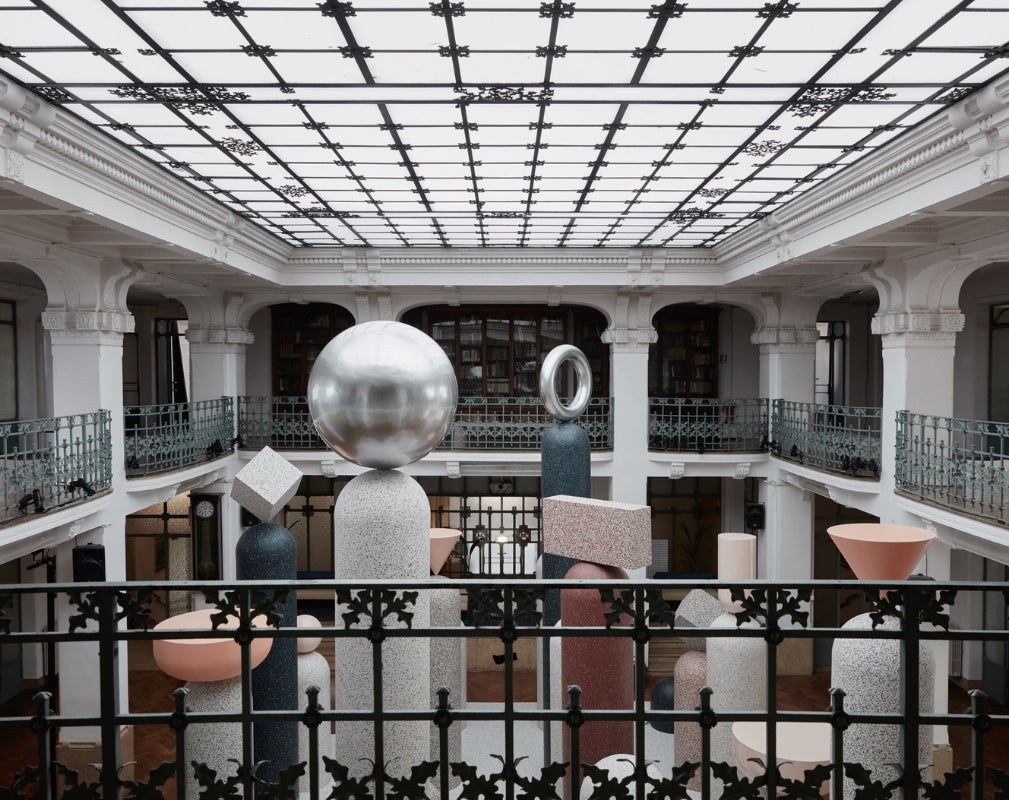
Tarkett and Note Studio
This exhibit proved to be particularly popular at Milan Design Week. Innovative flooring manufacturer Tarkett, who is known for its enthusiasm for the circular economy, joined forces with Swedish design studio Note to create a mesmerising installation called Formations.
Tarkett took over the space of the historic Circolo Filologico Milanese to explore the creative possibilities of its new product, iQ Surface. The vinyl collection is designed with architects and designers in mind and represents a new generation of industrial and creative surface material that is equally at home wrapping around objects, climbing across walls and forming patterns in combinations.
The installation aimed to shift preconceptions about what vinyl can do and to showcase it as a design material with its own identity.
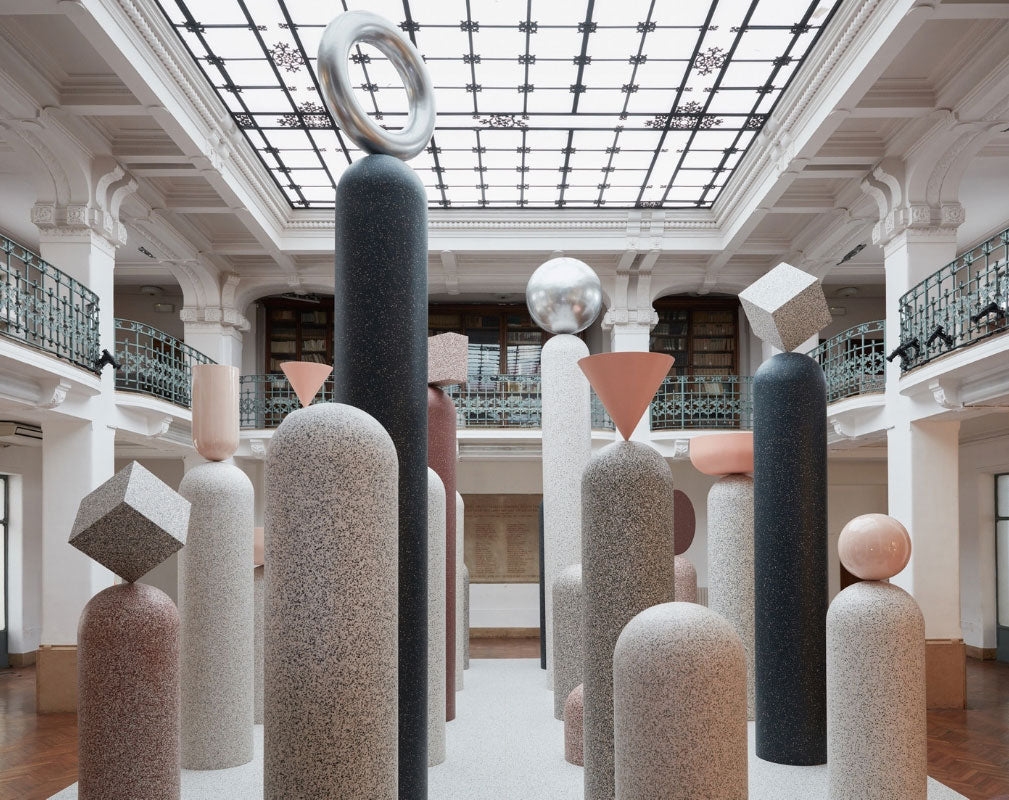
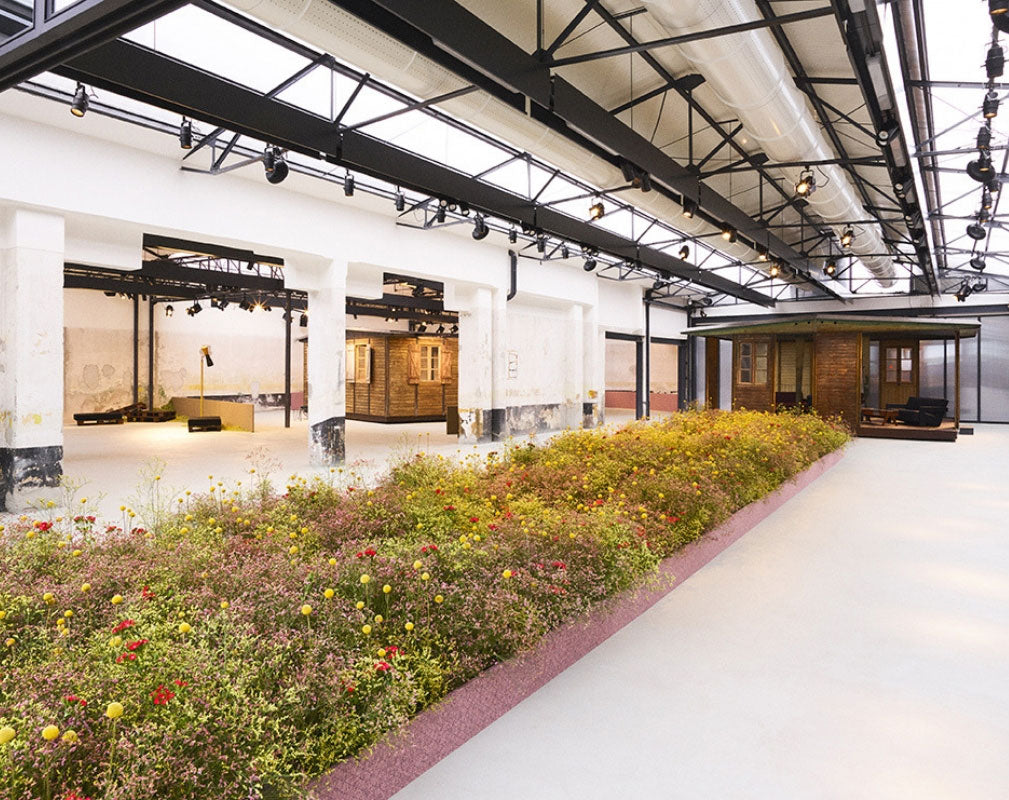
Kvadrat/Raf Simons
No Man’s Land was an immersive installation at Garage 21 where textile brand Kvadrat launched its sixth collection in collaboration with Antwerp-based designer Raf Simons. The installation investigated the interaction between nature and the city and showcased four new upholstery designs.
The diamond grid pattern of Novus 1 and Novus 2 is re-imagined as garden fencing in distinctly non-suburban colours. The thick cording of Phlox is echoed in the wooden slats of transport palettes on which it appears as cushions in an ad hoc seating arrangement. Atom has been shredded to create a speckled floor, recalling grassy lawns, flower gardens and even patches of dust.
The installation also featured three pre-fab buildings by Jean Prouvé: a seated area for visitors, a mid-century home, and a workshop. The textiles were presented in the workshop as if they were works in progress. This allowed visitors to touch and explore the fabrics in a more hands-on way.
